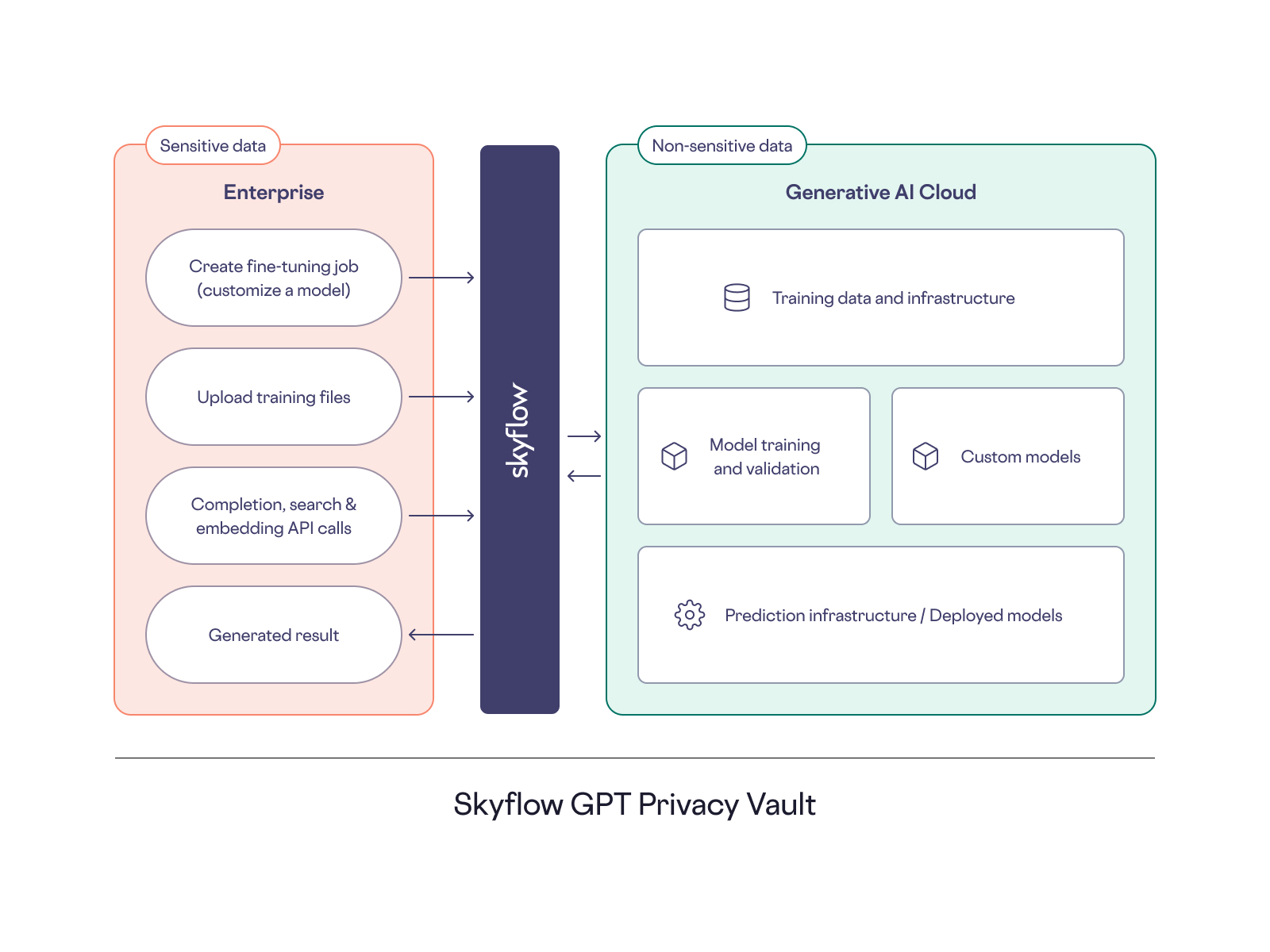Skyflow, a data-privacy startup, announced Friday that it has expanded the number of markets where it offers data residency support for companies that need to keep certain information inside defined borders. In today’s market, you probably can’t keep EU customer data in, say, South America and vice versa, so companies need to take care to keep certain information at home in the market where it was sourced from.
Skyflow started life as a tool to help companies store personally identifying information, or PII, in a secure manner. Its API helps companies “handle all the difficult privacy, encryption and data issues of storing PII and other forms of potentially radioactive data for its customers,” we wrote when we last covered the company.
The startup, which most recently closed a $45 million Series B in late 2021, can now support data residency requirements in Japan, India, Indonesia and Bahrain. The work, Skyflow CEO Anshu Sharma explained to TechCrunch+, will allow software companies to offer their services in more markets, more quickly, while meeting local regulatory requirements concerning where the data lives and the safe storage of personal user information.
Sharma argued that his company’s newly expanded regional data storage capabilities will provide ways to help other companies avoid the complexity of spinning up their own data storage and security frameworks simply to launch in new markets.
Skyflow’s work to support more regions wasn’t cheap. Sharma said that the work had a “high fixed cost,” which Skyflow could afford because it “raised a lot of money,” enabling it to “take on the infrastructure and operational costs” for its customers. (As an aside, this is what venture capital is for: to build ahead of revenue in hopes of collecting outsized market share.)
Given that every tech company — startup and major alike — wants to accrete every scrap of growth possible in the current slow market, you can see why Skyflow expects a return on its spend. If software companies continue to push to reach new markets to sell their services, they will have to handle an array of data regulations and rules on their own. Or they can work with Skyflow or one of its competitors — EverVault, Protegrity, among others — to help meet local requirements.
So far, Skyflow has found notable international adoption. Sharma told TechCrunch+ that Skyflow does more than 40% of its current business with non-American customers. The CEO was quick to point out — by pulling up S-1 filings during our call — that some well-known software companies sported a low-double-digit portion of their revenue from international markets when they went public. It’ll be curious to see if greater regional support pushes that figure above 50% in time; we’ll check back in with the startup in a few quarters.
Where does generative AI come into this?
Skyflow initially focused on offering its service to the fintech and health care verticals. However, it recently built a version of its data storage service to support generative AI services, so when we had Sharma on the phone to talk data residency we also asked a few questions about market demand for LLM-related software services.

First, we wanted to know if the startup built the tool thanks to known demand or ahead of anticipated need. Per Sharma, his startup started getting calls from customers a few months back about generative AI and how those companies need to keep not just PII, but internally sensitive data as well, away from LLMs. He said that demand is coming from both bottoms-up usage of generative AI tools and executive-level curiosity. Put another way, both corporate drones and corporate demigods alike want to use generative AI, but they don’t want to get into trouble with the sort of data leaks we’ve already seen in the market.
Once data gets into an LLM, getting it out is nigh impossible without rolling models back in time to a less-informed state, Sharma said. So, if a company wants to use generative AI internally — no matter if it’s using a publicly hosted model, a private LLM instance hosted on a public cloud or even on its own servers — keeping certain terms and phrases out of the ingestion flow is important.
Since Skyflow already had a method for keeping PII secure, it added a capability to solve what Sharma calls the “yellow problem,” an homage to Apple’s recent yellow iPhone launch: What if you don’t want anyone to know that you are building a yellow phone? Well, you don’t want an LLM to learn about it, so you need a way to filter out those terms. Skyflow’s recently launched generative AI service melds its PII service to an ability to filter terms from data ingested into LLMs at once, perhaps allowing customers to leverage new AI tools without losing control of key information.
Skyflow’s AI-focused service is interesting by itself as far as we care about not only AI tech but also the software built to support it. Because we intend to get Skyflow to tell us in time just how big a business its new AI-related privacy service proves to be. If it quickly becomes a key driver of the startup’s growth, we’ll have an interesting data point in hand that generative AI really is finding a solid footprint inside the enterprise. If it flops, well, we’ll have a different answer.































Comment